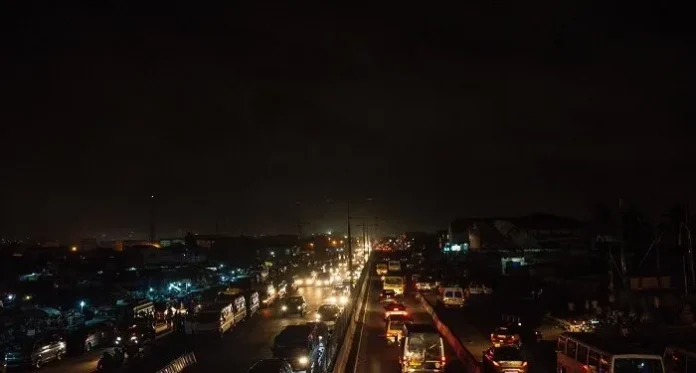Ghana cannot afford another power crisis like the devastating dumsor era of 2012 to 2016, according to stark findings in the World Bank’s latest Africa Pulse Report, which reveals how unreliable electricity crippled industries, destroyed jobs, and drove away foreign investors.
The October 2025 report paints a sobering picture of the economic toll from Ghana’s last major electricity crisis. Foreign direct investment in non-energy sectors plummeted by 12.3 percent, while national employment dropped by an estimated 5 percentage points during the prolonged outages that became synonymous with economic hardship.
Beyond the statistics lie thousands of real stories: factories shuttered, small businesses collapsed, and families plunged into financial uncertainty. The power crisis forced companies to divert scarce capital away from expansion and hiring into expensive backup generators and solar systems just to maintain basic operations. For many, the burden proved too heavy, leading to permanent closures and mass job losses.
The World Bank analysis confirms what Ghanaian business owners experienced firsthand. Companies frequently exposed to power outages showed significantly lower productivity levels. The constant disruption to production schedules, combined with the financial strain of generating their own electricity at costs far exceeding grid prices, created a perfect storm that weakened Ghana’s industrial base.
The impact extended beyond immediate operational challenges. The World Bank found that across Sub-Saharan Africa, each percentage point increase in outage intensity can reduce the number of operating firms by up to 1.7 percent. In Ethiopia, for comparison, the correlation was even stronger, with outage intensity linked to a 1.7 percent reduction in business activity.
For Ghana, the dumsor crisis represented more than temporary inconvenience. It functioned as what economists call a “silent tax” on productivity, hitting hardest the manufacturing and service sectors that government officials now expect to drive job creation under the African Continental Free Trade Area. When businesses cannot rely on consistent power, they cannot compete effectively in regional or global markets.
The timing of the World Bank’s findings carries particular weight. Ghana is positioning itself as a West African trade hub, requiring the kind of reliable infrastructure that inspires investor confidence. Recent developments have raised concerns about potential power sector instability, prompting calls for comprehensive reforms.
International financial institutions are sounding alarms about the structural problems plaguing Ghana’s energy sector. Both the World Bank and International Monetary Fund have urged dramatic reforms to prevent a repeat of the dumsor era. The government has responded by introducing a one cedi per litre levy specifically earmarked for addressing the sector’s mounting debt burden.
Attention has focused especially on the Electricity Company of Ghana, with stakeholders arguing the utility requires fundamental restructuring to improve efficiency. A business coalition recently petitioned the president, demanding an end to what they describe as a damaging cycle where tariff increases mask ECG’s operational inefficiencies rather than addressing root causes.
The broader implications extend to Ghana’s economic recovery and development trajectory. As the country works to consolidate recent macroeconomic gains, including the cedi’s remarkable performance as Africa’s best currency in 2025, stable electricity supply has emerged as a non-negotiable foundation for sustained progress.
Power outages do not simply disrupt production schedules. They undermine the investment climate by signaling unreliability and risk. For a nation seeking to attract the capital and technology transfer needed for industrial transformation, perception matters as much as reality. Potential investors study infrastructure reliability before committing resources, and Ghana’s dumsor legacy still colors those assessments.
The manufacturing sector, in particular, cannot function competitively without dependable electricity. Modern production processes require precise timing and quality control, both impossible when power supply remains uncertain. Service industries face similar constraints, especially as digital technologies become increasingly central to business operations across sectors.
Ghana’s experience offers broader lessons for African countries grappling with energy challenges. The World Bank report emphasizes that reliable, affordable electricity stands as foundational infrastructure for private sector development. Without it, even well-designed economic policies and trade agreements cannot deliver their full potential.
Looking ahead, Ghana faces critical choices about energy sector management. The government must balance immediate crisis prevention with long-term structural reforms. Short-term measures like the fuel levy can provide breathing room, but sustainable solutions require addressing governance, operational efficiency, and investment in generation capacity.
The stakes are clear. Another dumsor crisis would not just dim lights; it would dim Ghana’s economic prospects precisely when the country needs momentum. With the World Bank’s analysis providing hard evidence of the devastating 2012 to 2016 impact, policymakers have every reason to treat energy reliability as an economic emergency requiring urgent, comprehensive action.
For ordinary Ghanaians, the message resonates deeply. Dumsor meant more than inconvenience. It meant lost wages, failed businesses, disrupted education, and diminished quality of life. The World Bank’s numbers confirm what communities already knew: reliable electricity is not a luxury but a necessity for shared prosperity.
As reform debates intensify, the October 2025 Africa Pulse Report serves as both warning and roadmap. Ghana has the opportunity to learn from past mistakes, implement necessary changes, and ensure the lights stay on. The alternative, as the World Bank makes abundantly clear, is too costly to contemplate.
Source: newsghana.com.gh











